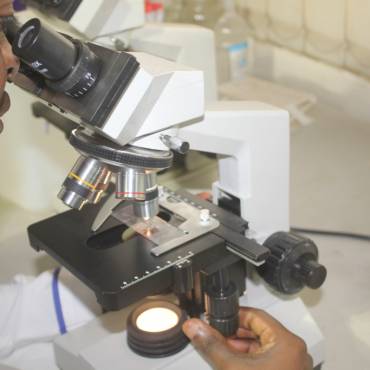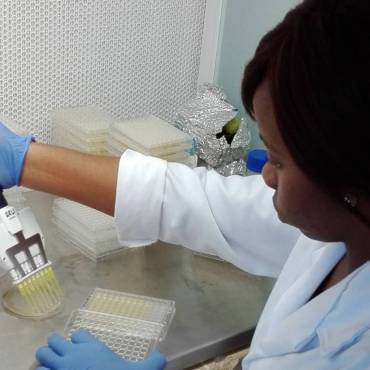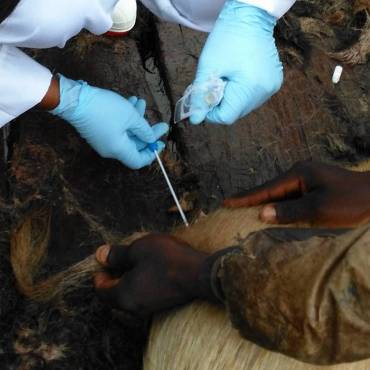Antimicrobial resistance in the farm-to-plate continuum
Antimicrobial resistance in the farm-to-plate continuum: more than a food safety issue Antimicrobial resistance (AMR) occurs when microorganisms are unaffected by antimicrobials that previously killed/inhibited them and cured the infection. This paper focuses on AMR from a food safety perspective. AMR in the food chain is a risk to exposed workers and consumers both locally
Multidrug-Resistant and ESBL-Producing Enterobacteriaceae in HIV patients
Multidrug-Resistant and Extended-Spectrum ß-Lactamase (ESBL)-Producing Enterobacterales Isolated from Carriage Samples among HIV Infected Women in Yaoundé, Cameroon The exacerbation of antimicrobial resistance (AMR) is a major public health threat worldwide. In sub-Saharan Africa, there is a scarcity of data regarding multidrug-resistant (resistance to at least one antibiotic of three or more families of antibiotics) as
Genome analysis of methicillin-resistant
Genome analysis of methicillin-resistant Staphylococcus aureus isolated from pigs: Detection of the clonal lineage ST398 in Cameroon and South Africa. Food animals are considered reservoirs of methicillin-resistant Staphylococcus aureus (MRSA) and are implicated in their zoonotic transmission in the farm-to-plate continuum. LA-MRSA has been reported as a zoonotic agent that has the potential to spread
Whole Genome Sequencing of Extended Spectrum
Whole Genome Sequencing of Extended Spectrum ß-lactamase (ESBL)-producing Klebsiella pneumoniae Isolated from Hospitalized Patients in KwaZulu-Natal, South Africa Extended spectrum ß-lactamase (ESBL)-producing Enterobacteriaceae remain a critical clinical concern worldwide. Dr Raspail Founou and colleagues carried out a study aiming at characterizing ESBL-producing within and between two hospitals in uMgungundlovu district, South Africa, using whole
Draft genome sequences of extended-spectrum
Draft genome sequences of extended-spectrum ß-lactamase-producing Enterobacter aerogenes isolated from swine and human Dr Luria Founou and colleagues, reported on the genome sequences of two Enterobacter aerogenes strains (HN503E2II and PN108E5IIB) isolated from two Cameroonian abattoirs. Using an Illumina MiSeq platform, the researchers de novo assembled the raw reads using CLC Genomics Workbench and SPAdes. The assembled contigs were annotated,
Emergence and Spread of ESBL-Producing Enterobacteriaceae
Emergence and Spread of Extended Spectrum ß-Lactamase Producing Enterobacteriaceae (ESBL-PE) in Pigs and Exposed Workers: A Multicentre Compara-tive Study between Cameroon and South Africa. Extended-spectrum ß-lactamase-producing Enterobacteriaceae (ESBL-PE) represent a significant public health concern globally and are recognized by the World Health Organization as pathogens of critical priority. However, the prevalence of ESBL-PE in food






